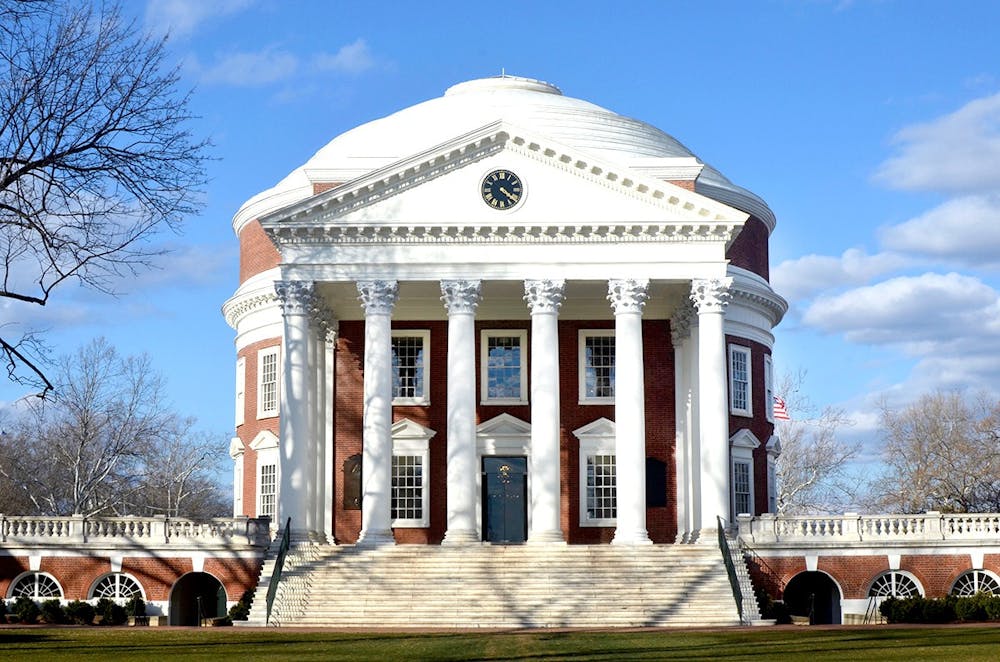To discuss the current state of scientific journalism, the University’s Environmental Institute hosted Chris Mooney, Pulitzer Prize-winning Washington Post journalist and lecturer at Yale’s School of the Environment, to discuss strategies for better reporting on science, including the importance of educating the public about science through a story Monday.
The event commemorated the Institute’s recent name change and mission expansion — the Environmental Institute, formerly the Environmental Resilience Institute, was founded in 2017. The Institute recently expanded its mission to focus on fighting climate change through student and community involvement.
Throughout Mooney’s career, he has written about subjects relating to the environment, climate change and energy. His 2020 Pulitzer Prize was awarded for a series of articles he wrote about climate change.
Drawing from the skills and knowledge developed during his career, Mooney said storytelling is an ideal method to communicate science to the general public. He reminded the audience of their own connections to characters in narratives by talking about his daughter’s love for the characters of Frozen.
“Just remember, sometimes a data point isn't just a data point — sometimes it is a story,” Mooney said.
He also said that stories allow the audience to empathize with characters. In the case of communicating science, empathy can help generate understanding from ordinary people outside of the scientific community. Using narrative stories in journalism, sometimes referred to as data journalism, can help the public gain a greater understanding of scientific knowledge.
Around 60 individuals attended the event, including Provost Ian Baucom. Baucom spoke about the Institute's recent name change and acknowledged the effort and planning put into the establishment of the Institute. After receiving $10 million, the Institute grows to include research and engagement relating to climate change and the environment with projects focused on finding solutions.
Mooney also described the communication challenges scientists face in today’s world, especially when interacting with the press and the public. Current strategies — like the deficit model, which suggests that communication about science should focus on improving transfers of information between experts and non-experts — are ineffective methods, Mooney said, especially with the vast array of information.
“Science is a gigantic vessel passing the public in the night with few lights on,” Mooney said.
He described the challenge of the public understanding what is being articulated by the scientists and that only a small fraction of the science is picked up by the press. When there are discrepancies between different news sources’ reporting, readers may feel like they’re not getting the whole story. Mooney said this can be especially challenging when different studies reveal diverse findings on the same subject.
According to Mooney, ideological views such as political party affiliations also contribute to the issue of communicating science to the public.
“Facts do not speak for themselves,” Mooney said. “People’s identities which are not just driven by political ideologies shape how information is received and processed.”
Mooney also said certain audiences, such as minority groups, are often excluded from scientific knowledge communication efforts.
Despite problems in the field of scientific journalism, Mooney highlighted successes in the world of science reporting, including the story of the town Broadwater located on Hog Island, a barrier island off the coast of Virginia. Residents were forced to abandon their homes as a result of the sea level rise. Numerous of the former residents moved to Oyster, where they once again faced the rising sea waters. Discovering stories like this one involves looking into scientific data, statistics, and studies.
Cathryn McCue, communications generalist for the U.Va. Office of Sustainability, attended the event. She said Mooney is a lead storyteller when it comes to understanding environmental issues that are often controversial, such as climate change.
“It's really wonderful that he has taken this opportunity to pull back the curtain as to the process behind how science is communicated to the public,” McCue said.
She said that since the University conducts central research in a variety of areas, ranging from medically-focused to in the social sciences, Mooney’s talk was informative on how this research could be better communicated to the masses.
In August, the Institute plans to host the Environmental Futures Forum to highlight the environment and climate-related research being conducted at the University.







